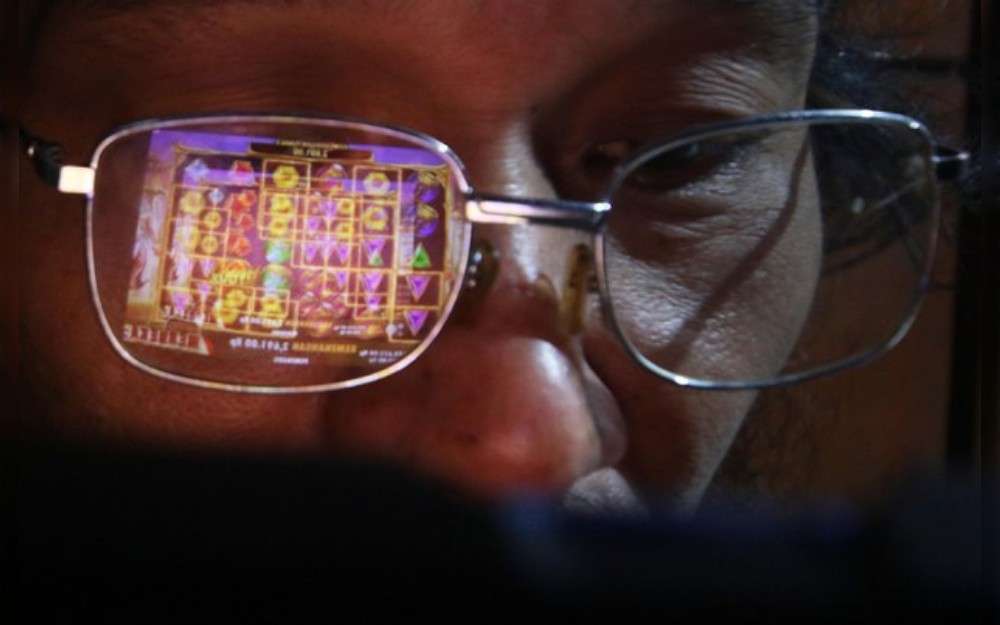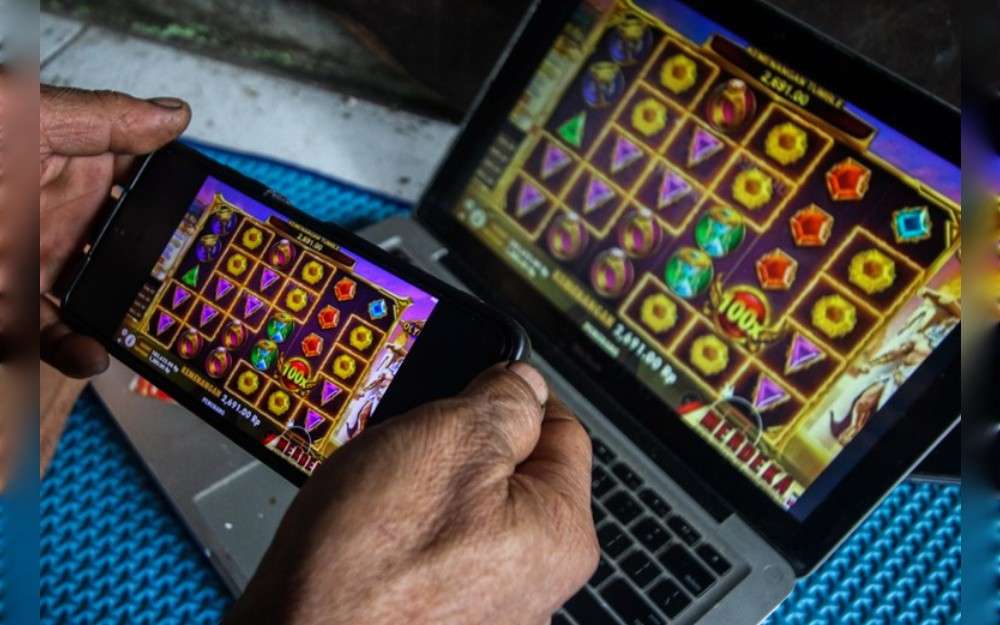Internet gambling has exploded in Indonesia, facilitated by the accessibility and anonymity of digital platforms.
Arie Firdaus and Ami Aftriatni/Jakarta

The horrific act of a policewoman fatally setting her husband ablaze over his alleged online gambling debts has shocked Indonesia, fueling a national conversation about the devastating consequences of addiction.
Rian Dwi Wicaksono, who was also police officer in the East Java city of Mojokerto, died on June 8 after his wife, Fadhilatun Nikmah, handcuffed him and set him on fire, allegedly because he spent most of his salary on internet gambling, police said.
She faces up to 15 years in prison for domestic violence leading to death in a case that has put the spotlight on an explosion of online gambling in Indonesia.
The allure of quick riches and the ease of placing bets anonymously from anywhere have ensnared millions, many of whom are young and from low-income families, according to experts.
“When gambling is mediated by the internet, its spread becomes wider,” said Derajad Sulistyo Widhyharto, a sociologist at Gadjah Mada University.
“What was once hidden is now open because it’s on everyone’s smartphones,” he told BenarNews.
Gambling is illegal in Indonesia, the world’s most populous Muslim-majority nation, but the rise of online platforms – many of which have been gamified to lure new customers – has made it increasingly difficult to enforce the ban.
According to the Financial Transaction Reports and Analysis Center (PPATK), Indonesia’s anti-money laundering agency, 3.5 million Indonesians regularly participate in online gambling, with transactions amounting amounting to U.S. $40 billion over the past several years.
The consequences are devastating and include financial ruin, broken families and increased mental health issues, officials and observers said.
One woman, who identified herself only as E for privacy, said she encountered the devastating impact of online gambling four years ago when her husband took his life. Just 15 minutes before his death, E said she found out he had been gambling online.
“In his last record, he lost 15 million rupiah (around U.S. $1,000),” E told BenarNews, highlighting the financial desperation that can accompany such addiction.
‘Not a game’
The Indonesian government has shut down more than 800,000 gambling websites in recent months, but also expressed frustration that new platforms – often based overseas – have quickly emerged to replace them.
This month, President Joko “Jokowi” Widodo announced the formation of a special task force to tackle the problem, led by Hadi Tjahjanto, the country’s top security minister and a former armed forces chief.
The team has taken steps such as blocking internet access to and from Cambodia and the Philippines, monitoring electronic wallet transactions, and imposing penalties on civil servants caught gambling online.

On Tuesday, the Indonesian government convened a meeting with religious organizations to discuss a united front against the issue.
Muhadjir Effendy, who serves as deputy chair of the national task force against online gambling, said the government was committed to eradicating the practice.
“Gambling is not just a game, a lottery, but it’s risking your own future, your family, and your children,” Muhadjir told the gathering, which included representatives from prominent religious organizations.
He urged religious leaders to join the fight by raising awareness and reporting any signs of online gambling within their communities.
Alfons Tanujaya, from cybersecurity firm Vaksin.com, urged the government to develop more sophisticated methods to target gambling transactions.
“Blocking internet access alone might not stop online gambling due to the use of VPNs” to bypass restrictions, he told BenarNews, referring to virtual private networks that can mask an internet user’s IP address.
Devie Rahmawati, a social observer at the University of Indonesia who has researched gambling behavior, said that online gambling apps, designed to resemble games, lure people into a false sense of security.
“Online gambling is made to look like games. It’s effortless, so people don’t realize the danger,” she told BenarNews, adding no social class was immune.
Derajad, the sociologist, said the government must intensify public education on the dangers of online gambling alongside law enforcement.
“This will indeed be a tough task. Legal and security approaches are necessary, but instilling values in society is also needed,” he said.
Copyright ©2015-2024, BenarNews. Used with the permission of BenarNews














